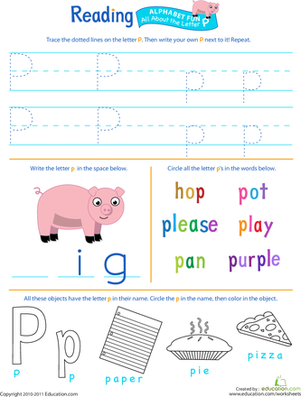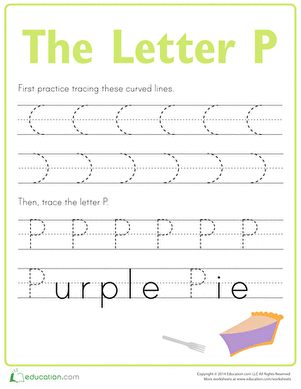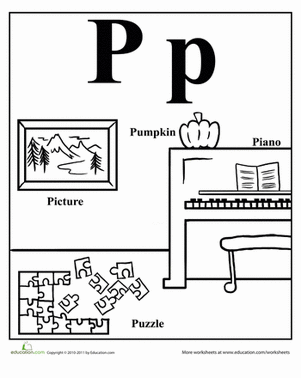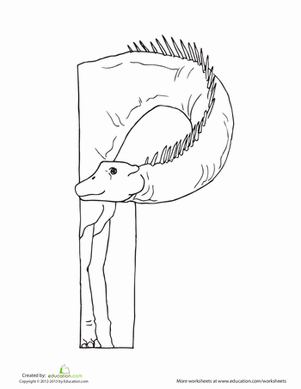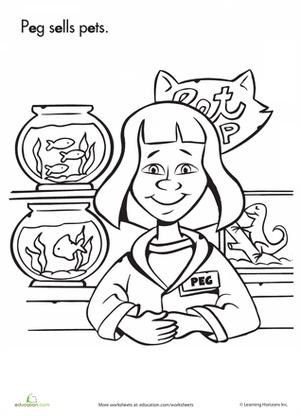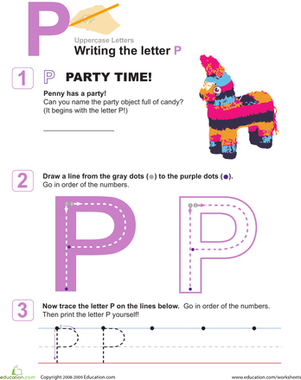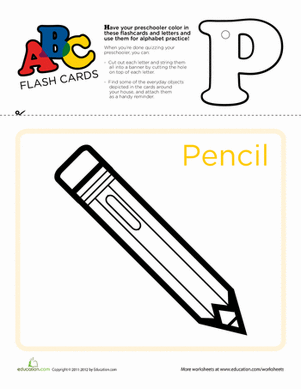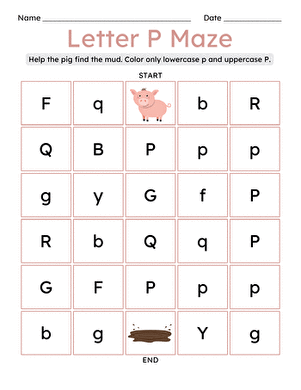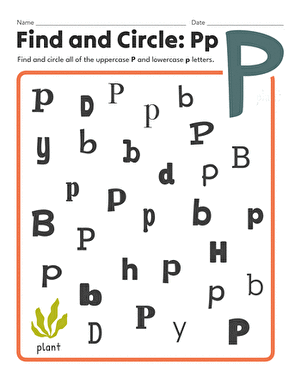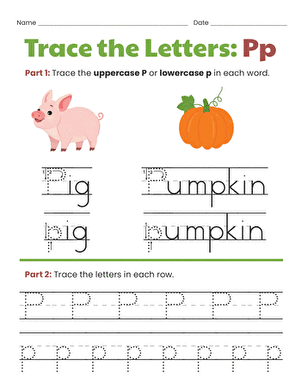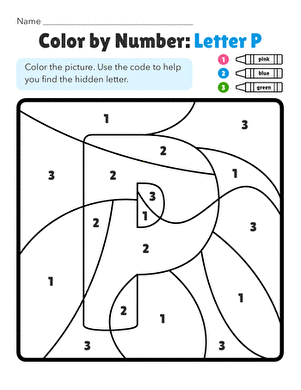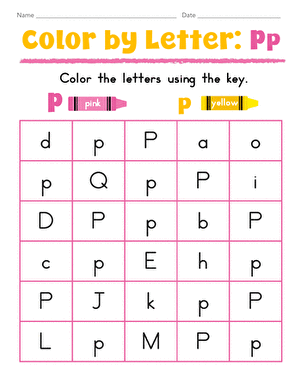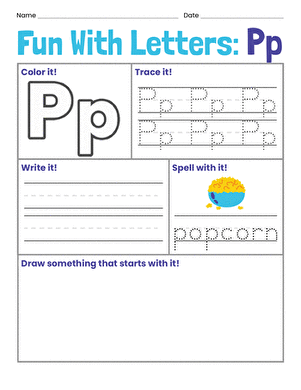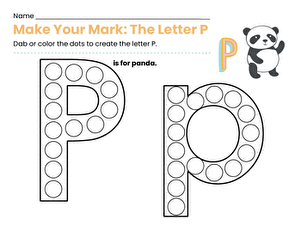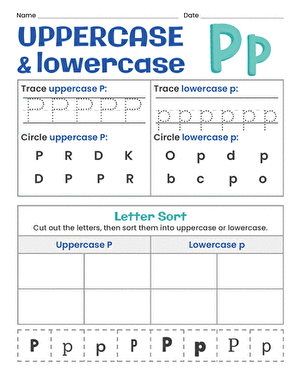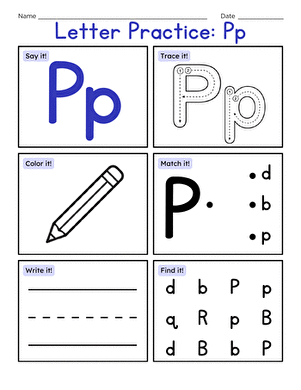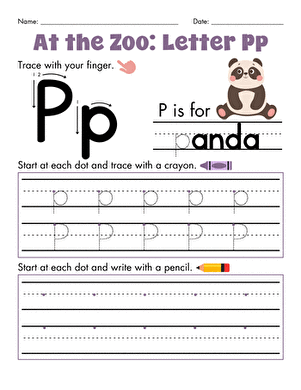Preschool Letter P Resources
About Preschool Letter P Resources
On Education.com, preschool letter P resources introduce young learners to the letter through engaging activities, worksheets, and printable exercises that emphasize letter recognition and phonetic sounds. These materials provide foundational fun for children beginning their literacy journey. By exploring structured activities on Education.com, educators and parents can help children strengthen letter awareness while making learning enjoyable and effective.
The resources include printable letter P worksheets, tracing exercises, coloring pages, and interactive games designed to build handwriting skills and letter association. These digital materials support early reading and writing development, encouraging children to connect sound and symbol recognition while practicing fine motor skills. Educators can also combine these activities into broader literacy lesson plans or classroom exercises.
Using Education.com’s preschool Letter P resources saves teachers and parents time by providing ready-to-print lesson plan materials and classroom resources. These structured activities help prevent planning overload and ensure consistent, engaging instruction. Plus, the variety of worksheets and games can accommodate diverse learning styles while reinforcing key literacy concepts.
The resources include printable letter P worksheets, tracing exercises, coloring pages, and interactive games designed to build handwriting skills and letter association. These digital materials support early reading and writing development, encouraging children to connect sound and symbol recognition while practicing fine motor skills. Educators can also combine these activities into broader literacy lesson plans or classroom exercises.
Using Education.com’s preschool Letter P resources saves teachers and parents time by providing ready-to-print lesson plan materials and classroom resources. These structured activities help prevent planning overload and ensure consistent, engaging instruction. Plus, the variety of worksheets and games can accommodate diverse learning styles while reinforcing key literacy concepts.



